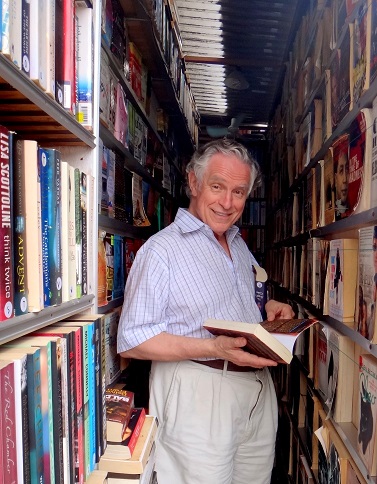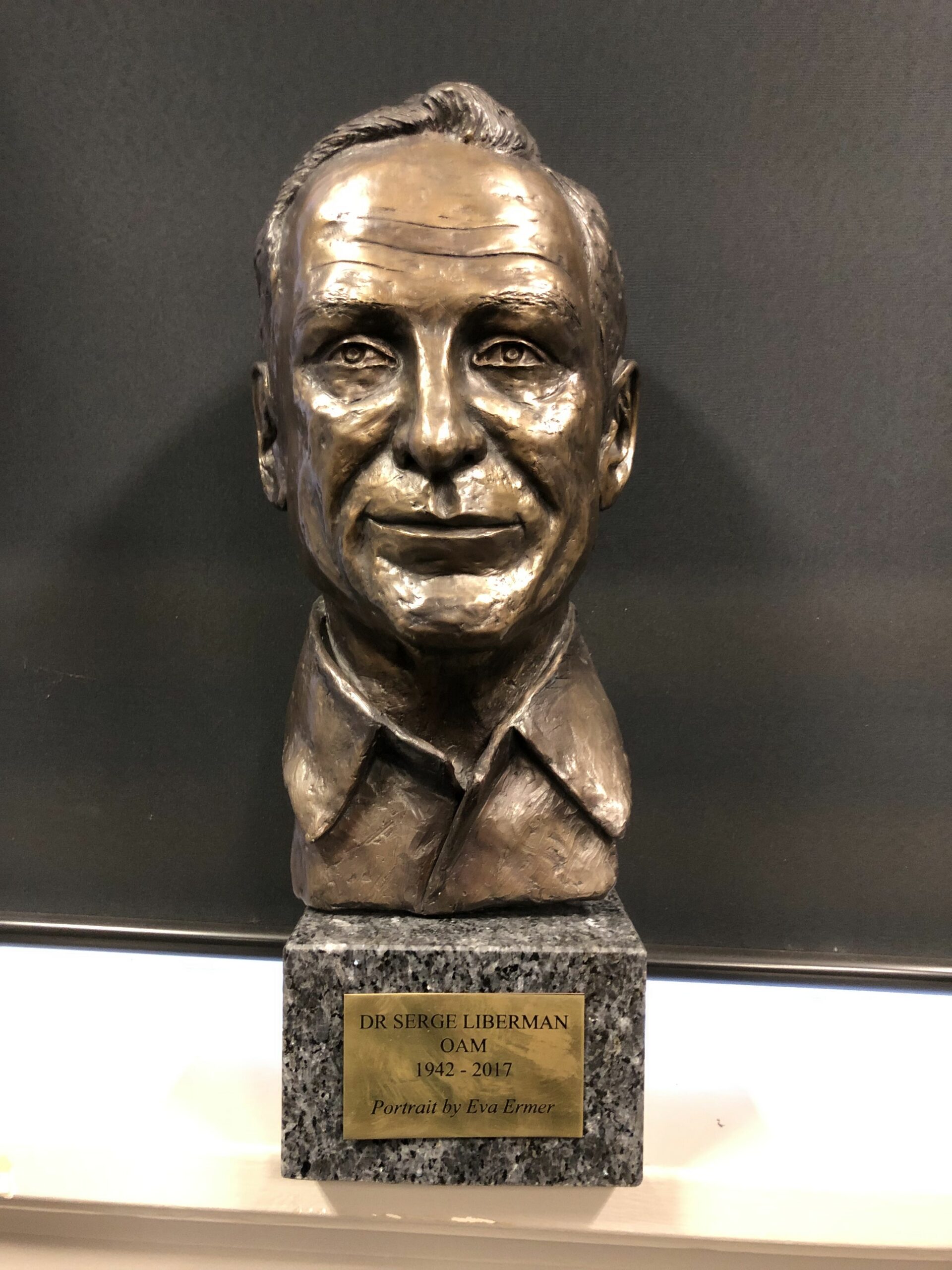The Serge Liberman Collection
Serge Liberman was one of Australia’s most renown Jewish authors, as well as a practicing doctor, with a professional career spanning more than 40 years.
Our library is proud to house Liberman’s private book collection in addition to items from his personal archive. The collection holds over 1200 titles covering a wide-range of subjects. The collection provides a valuable resource for scholars, researchers, and those interested in Liberman’s extensive range of interests.

This image was taken from the online version of Coolabah, No. 26 (2019): A Tribute to Serge Liberman
Serge Liberman (1942-2017)
From ‘Writer-doctor Noted for His Humanity’, by Alex Skovron, The Sunday Morning Herald.
Dr Serge Liberman, author, editor, scholar, bibliographer and medical practitioner, has died in Melbourne at the age of 75. For more than 40 years he was a leading light in Australian Jewish literary and multicultural spheres.
Serge Israel Liberman was born on November 14, 1942, in Fergana, Uzbekistan (USSR), to Abram Jacob and Regina Liberman (nee Minski), Polish-born parents made refugees by the war in Europe. A daughter, also born in Fergana, died there in infancy before Serge was born.
After spending time in a displaced persons’ camp in Germany (1946-7) and then in Paris (1947-51), the family of three arrived by ship in Melbourne in 1951. Serge learnt English, continued his education, graduated in medicine in 1967 and (after a period in Israel with his first wife Eva Matzner, where the eldest of their three children was born) began work in Melbourne in 1974 as a general practitioner, continuing until his retirement in 2013.
Alongside that career he pursued his literary vocation. Over some 30 years he published six collections of stories: On Firmer Shores (1981), A Universe of Clowns (1983), The Life That I Have Led (1986), The Battered and the Redeemed (1990), Voices from the Corner (2000) and Where I Stand (2008).
During much of that period he laboured tirelessly on his groundbreaking Bibliography of Australasian Judaica: 1788-2008, the updated and expanded third edition of which appeared in 2011. At more than 800 pages, this is a towering work for which researchers and readers will be grateful for decades to come: a compendium of meticulously organised information on all publications concerned with Jewish life, literature, history, culture and the arts in Australia and New Zealand.
Liberman’s published work, represented in numerous journals and anthologies in Australia and overseas, included editorials, translations, book reviews and essays on historical, cultural, literary and communal topics.
He was an editor of the Melbourne Chronicle, associate editor of the multicultural journal Outrider, literary editor of the Australian Jewish News and Menorah and vice-president of PEN Melbourne. He served on the editorial committees of the Australian Jewish Historical Society Journal and Gesher, journal of the Council of Christians and Jews.
For his short-story collections, he was three times winner of the Alan Marshall Award and a recipient of the NSW Premier’s Literary Award, and three of the books were set as study texts in a number of Australian high schools and universities. In 2015 he was honoured with the Medal of the Order of Australia (OAM) for his contribution to Australian literature as an author, historian and scholar.
His fiction is distinctive for its vivid, highly-charged prose and its ethical, at times metaphysical, intensity, and especially for its myriad protagonists drawn with colourful precision and a compassionate understanding of the highlights and shadows of the human spirit. The stories are thought-provoking, rich in penetrating insights and often extremely moving.
Liberman’s imagination was shaped by the world’s great authors, dramatists, philosophers, artists and musicians; and perhaps even more so by the greats of the Jewish and Yiddish literary traditions, which infused his writing.
His strong Jewish identity, and his history as a child survivor of the Holocaust growing up in an atmosphere darkened by a backdrop of devastation and loss, underpin many of the themes woven through the pages of his books. And while the Jewish experience, in its many guises, would remain his work’s centre of gravity, he regarded his stories as universal in their exploration of the elements and enigmas of our common humanity.
Liberman was a kind, courteous, softly spoken individual and a thoughtful, loyal and generous friend. Forever excited by ideas, he relished good conversation and was always willing to question, to seek out, discover, engage. Serious and studious, he could sport a correspondingly understated wit, while his humour could display an absurd, even wicked streak.
He was a person of supreme dedication and immense energy – which he needed, in order to combine his creative, professional and voluntary work with a thriving full-time medical practice. As a doctor, he was revered by his patients for his unstinting devotion and personal concern for their welfare. By nature, a modest and humble man, Serge gave of himself freely and generously.
The bulk of his editorial and scholarly work was done on a voluntary basis, with no expectation of monetary reward. He played a significant role in fostering Australian Jewish writing, not only through the publications he was involved with but frequently in less visible capacities. I know I speak not just for myself but for many other writers, young and not so young, who were the beneficiaries of his encouragement and support.
Confronted in 2016 with a diagnosis of motor neurone disease, Serge the medical professional fully understood its ineluctable trajectory; as a committed rationalist, however, he eschewed the consolation of any thought of an afterlife.
Throughout his illness he maintained an extraordinary outward demeanour: his characteristic ready smile, expressed by the merest crease around the lips, could warm the heart and lift the mood of any visitor who chanced to offer a joke or ironic aside. His dignity and grace in the face of his unspeakable predicament were an inspiration.
Serge Liberman died on 22 December 2017 at Gary Smorgon House, South Caulfield. His staunch integrity, his caring, compassionate nature and his profound humanity were a hallmark not only of his work and his writing but of the life that he led, and of the way he led it.

